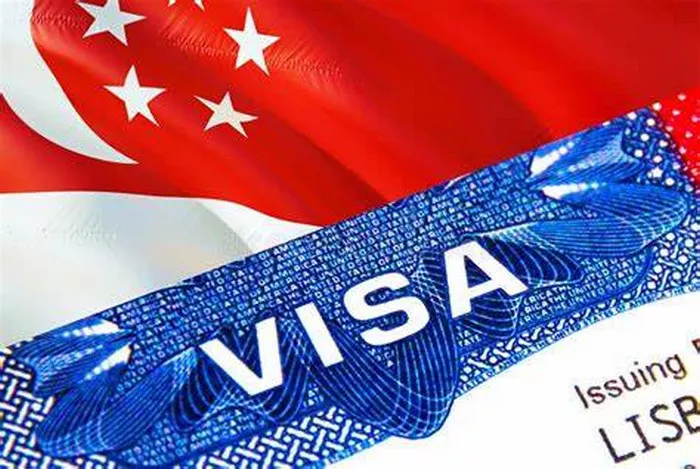Singapore, known for its dynamic economy and multicultural society, attracts individuals from around the world seeking opportunities for employment, education, and residence. However, entering and staying in Singapore requires adherence to the country’s immigration laws and regulations. The Immigration Pass system plays a pivotal role in governing the entry, stay, and employment of foreign nationals in Singapore. Understanding this system is crucial for individuals and businesses navigating Singapore’s immigration landscape.
Types of Immigration Passes
Singapore offers various types of immigration passes tailored to different purposes and categories of individuals. These passes cater to professionals, skilled workers, entrepreneurs, investors, students, and family members of Singapore residents or citizens. The key immigration passes include:
1. Employment Pass (EP): The Employment Pass is designed for foreign professionals, managers, executives, and specialists who wish to work in Singapore. To qualify for an EP, applicants must meet specific criteria, including salary thresholds and qualifications.
2. S Pass: The S Pass targets mid-skilled foreign workers employed by companies operating in Singapore. Unlike the EP, the S Pass has lower eligibility requirements and is typically granted to individuals with technical skills and relevant work experience.
3. Work Permit (WP): The Work Permit is for semi-skilled and unskilled foreign workers hired in sectors such as construction, manufacturing, and domestic work. Employers must fulfill certain conditions and responsibilities when hiring Work Permit holders.
4. EntrePass: The EntrePass is for foreign entrepreneurs who plan to start and operate a business in Singapore. Applicants are assessed based on various factors, including business viability, entrepreneurial experience, and investment amount.
5. Personalised Employment Pass (PEP): The PEP offers greater flexibility to high-earning EP holders and overseas foreign professionals. It allows holders to remain in Singapore for up to six months between jobs and offers other benefits aimed at attracting and retaining top talent.
6. Dependent’s Pass (DP): The DP is for spouses and unmarried children (under 21 years old) of EP or S Pass holders. It enables them to live in Singapore and, in some cases, work or study.
7. Long-Term Visit Pass (LTVP): The LTVP is for common-law spouses, stepchildren, and elderly parents of EP or S Pass holders. It allows them to reside in Singapore for extended periods but does not grant work rights by default.
8. Student Pass: The Student Pass is for international students pursuing full-time studies at approved educational institutions in Singapore. It is typically sponsored by the educational institution.
Application Process
The application process for each type of immigration pass varies, but it generally involves the following steps:
1. Preparation: Applicants must gather required documents, such as educational certificates, employment contracts, and passport details, before submitting their applications.
2. Submission: Applications are typically submitted online through the relevant government portal, such as the Ministry of Manpower (MOM) website for employment-related passes or the Immigration and Checkpoints Authority (ICA) website for other passes.
3. Assessment: Authorities assess each application based on eligibility criteria, including qualifications, salary, employer credentials, and business viability.
4. Approval: Upon approval, successful applicants receive an In-Principle Approval (IPA) letter detailing the conditions of their pass and any additional requirements, such as medical examinations or security clearances.
5. Collection: Pass holders must collect their passes in person upon arrival in Singapore, typically within a specified timeframe indicated in the IPA letter.
6. Renewal: Most immigration passes have validity periods ranging from one to three years and can be renewed subject to continued eligibility and compliance with regulations.
Key Considerations and Requirements
While the specific requirements for each immigration pass vary, several key considerations apply across the board:
1. Employer Sponsorship: Most employment-related passes require sponsorship by a Singapore-registered company. Employers play a crucial role in the application process and are responsible for complying with relevant regulations.
2. Minimum Salary Thresholds: Certain passes, such as the EP and S Pass, have minimum salary thresholds aimed at ensuring that foreign workers contribute to Singapore’s economy and do not undercut local wages.
3. Quota and Dependency Ratio: Singapore imposes quotas and dependency ratios on certain passes, such as the S Pass and Work Permit, to manage the inflow of foreign workers and maintain a balanced workforce composition.
4. Security Clearance: Some passes, particularly those involving sensitive industries or roles, may require applicants to undergo security clearance checks conducted by relevant government agencies.
5. Medical Examination: Applicants may be required to undergo medical examinations to ensure they are in good health and free from infectious diseases before being granted certain passes.
6. Relevant Experience and Qualifications: Pass applicants must typically demonstrate relevant experience, qualifications, or skills deemed necessary for their intended employment or business activities in Singapore.
7. Compliance and Regulations: Pass holders must comply with Singapore’s immigration laws and regulations, including requirements related to employment, residency, taxation, and social responsibilities.
Impact of Immigration Policies
Singapore’s immigration policies play a crucial role in shaping its workforce, economy, and social fabric. By attracting skilled professionals, entrepreneurs, and investors from diverse backgrounds, Singapore enhances its innovation capacity, competitiveness, and global connectivity. However, immigration policies also need to strike a balance between addressing labor market needs, safeguarding local interests, and fostering social cohesion.
Challenges and Future Outlook
Despite its benefits, Singapore’s immigration system faces challenges such as managing population growth, addressing income inequality, and mitigating potential social tensions. As Singapore continues to evolve as a global hub for talent and investment, policymakers must adapt immigration policies to meet changing economic, demographic, and societal dynamics. This may involve enhancing support for local workforce development, promoting fair employment practices, and leveraging technology to streamline immigration processes.
Conclusion
In conclusion, the Immigration Pass system is a cornerstone of Singapore’s efforts to attract and retain talent, facilitate business growth, and promote economic competitiveness. Understanding the various types of passes, application procedures, and key considerations is essential for individuals and businesses seeking to navigate Singapore’s immigration landscape effectively. By aligning immigration policies with broader socioeconomic objectives, Singapore can continue to thrive as a vibrant and inclusive global city-state.


